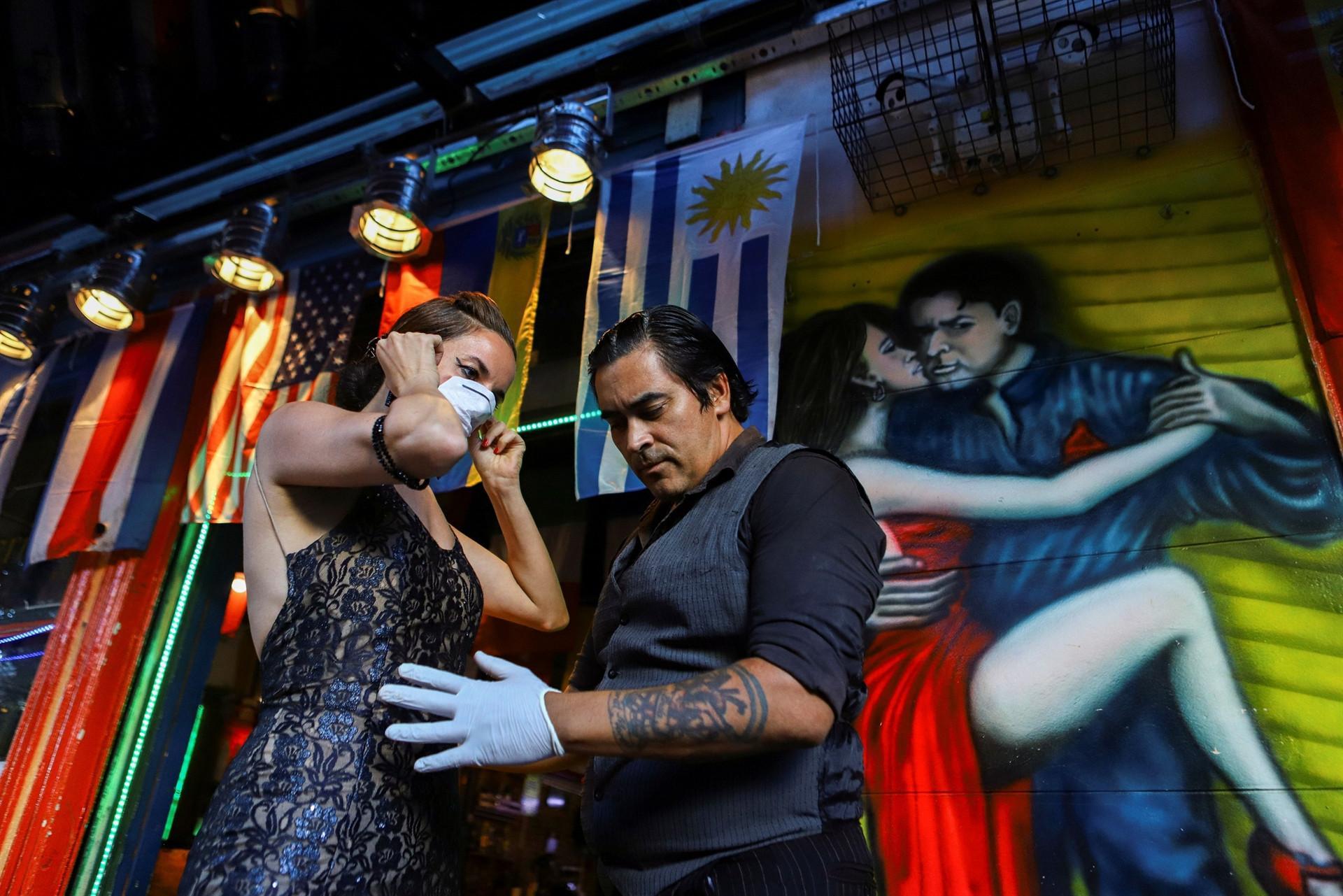
If it takes two to tango, then the national dance of Argentina may come up one short in the age of coronavirus.
Tango classes, shows and milongas - traditional tango gatherings - have been suspended in capital Buenos Aires for at least 15 days as the dance community follows the government's lead in banning public events.
That's hard to take for many in the tango capital of the world and a country where tactile greetings, sharing gourds of 'mate' herbal tea, and gathering around the 'asado' barbecue grill are key parts of the social fabric.
"The hugs, the kissing, the mate and the tango - all of our traditional culture is compromised," tango dancer and instructor Alejandro Ferreyra, 35, told Reuters.
"We have to change our way of thinking for a while... There are a lot of older people dancing tango in the milongas and taking lessons, and they are the risk population."
South America, mostly in the southern hemisphere and at the tail end of its summer, is behind the curve of the northern hemisphere in the number of confirmed coronavirus cases.
But authorities are not taking any chances. Argentina, which has had 65 coronavirus cases and two deaths so far, has shut its borders, closed schools, and banned large events to stem the spread of the virus that has infected over 169,000 globally, put countries in lockdown, and hammered markets.
The tango suspension threatens the most famous symbol of Argentina's romantic culture. Danced in street corners, plazas and theaters, tango usually attracts droves of visitors to Buenos Aires looking to catch a glimpse, or try it for themselves.
People of all ages dance to the passionate tango music at the city's milongas, holding each other closely, often cheek to cheek.
In a new era of social distancing, President Alberto Fernandez has cautioned Argentines against getting too close, however.
"We are a warm society, which hugs and kisses," the President wrote on Twitter, adding that people needed to show their affection in a "non-physical" way - "at least for a time".
Tango teacher Ferreyra is one of thousands of industry professionals who have seen their livelihood hit. He and his dance partner were forced to cancel lessons in Buenos Aires, as well as postponing a tour of tango events through the Middle East, Europe and Asia.
For Mona Moussa, 42, a tango aficionado from the United States who temporarily moved to Buenos Aires to dance, the very essence of tango is now what makes it off limits.
"I fell in love with the concept of the 'abrazo' - the embrace - and dancing as one," said Moussa.
Johanna Dalez, a Buenos Aires-based travel planner who coordinates 'tango vacations' for tourists, said the effect of a drop in travel and quarantines for those who arrive from places like the United States or Europe were rippling though the industry.
However, people are still finding ways to dance - even with classes canceled.
Dalez said that "underground" milongas or private events at peoples' homes would likely continue to some extent.
After all, she said, the dance of passion is not easy to quit.
"It's like a drug. I always tell people who start dancing that once they start, they become an addict," she said.